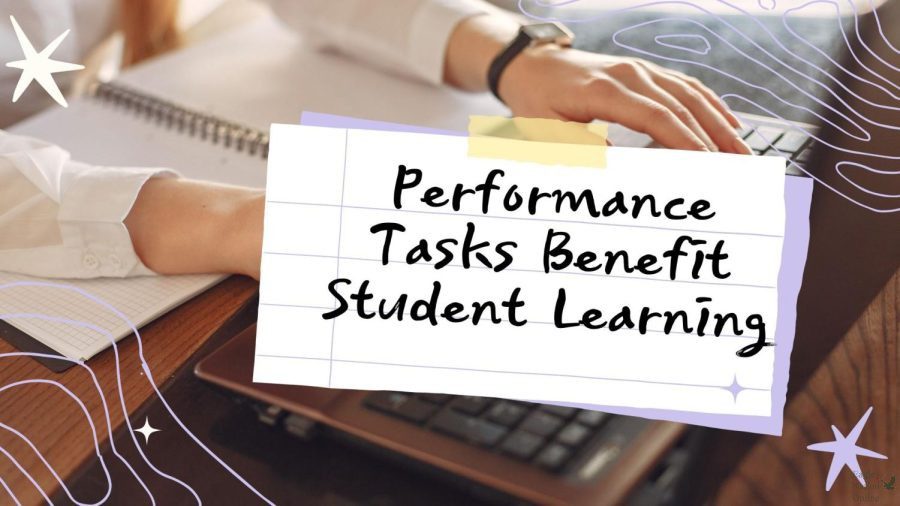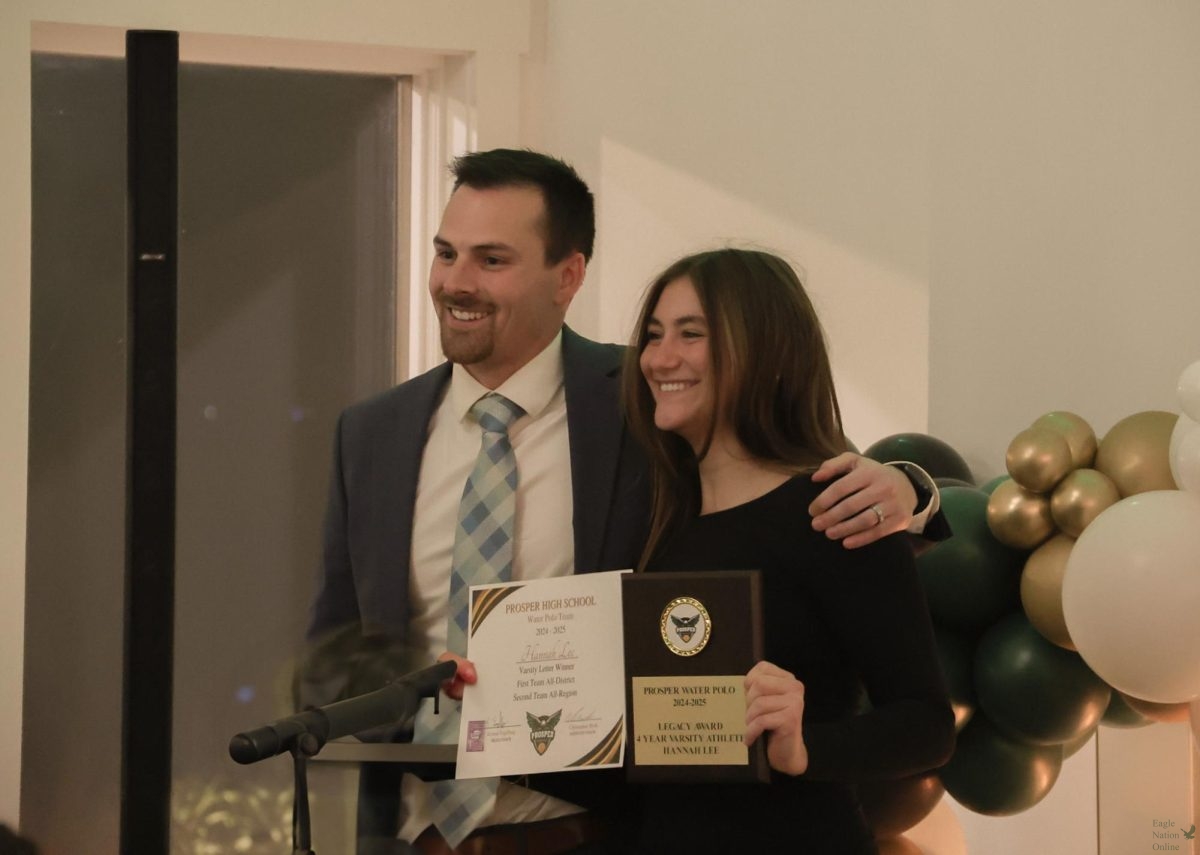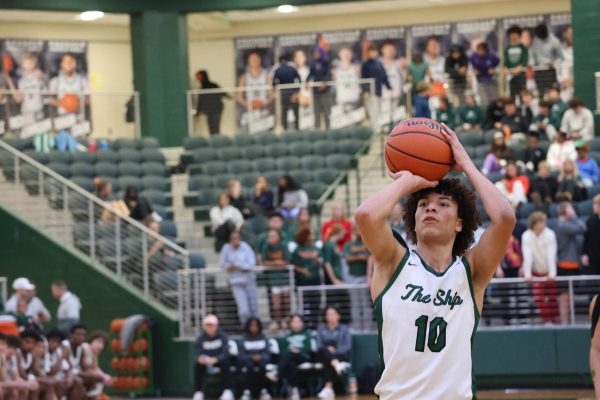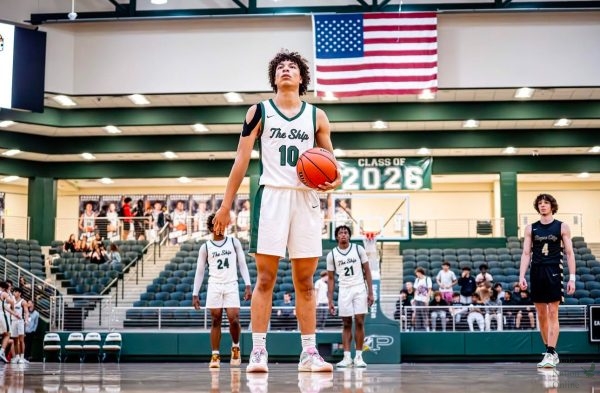Editorial: Performance tasks benefit student learning
In a graphic created in Canva, a stock image of a person on a computer accompanies lined paper with the text “Performance Tasks Benefit Student Learning.” Students are assigned performance tasks or assessments within the last week of school before winter break as a semester final. The performance tasks students are assigned depend on the course they are in and the content students need to show knowledge of, similar to an exam, but performance tasks are typically project-based.
December 7, 2022
As winter break nears, teachers assign their students projects known as “performance tasks” for their semester final. While graded with the same weight as a test, a performance task requires students to demonstrate their knowledge of a subject through the creation of a product or the completion of a task relating to skills developed in class.
Many schools have midterm or semester final exams at this time of year, where students are given a test for each course they are in. Although some believe that midterm exams are better for the student learning process, as many universities require semester finals instead of a performance-based assessment, we disagree. While an exam could have the potential to prepare a student for future assessments in college, performance tasks have shown to be more beneficial for the student learning process.
Performance tasks allow students to have a more authentic way of demonstrating their knowledge of a subject, including any subskills learned, which cannot be reflected on a typical exam. Students are not the only ones who benefit from performance tasks, either. Teachers benefit from giving students performance tasks as they are able to see a variety of skills learned from the content taught. Having performance tasks at the end of the semester shows teachers how students have developed their problem-solving skills and understanding of the material throughout the semester.
A performance task is designed to show how students have learned material through a demonstration rather than answering questions on a test. Performance tasks prepare students for the “real world.” In the setting of a job, employees are evaluated by their ability to complete the tasks they were hired to do, as well as their ability to problem solve. While a performance task would not be the single factor in developing these traits, performance tasks can help a student grow familiar with other forms of assessment or evaluation that will be used after their graduation.
Even though one could still claim that only having performance tasks may result in a student not being prepared enough for college-level semester exams, the skills performance tasks provide can still prepare a student for the college environment.
Similar to how the skills used in performance tasks, such as collaboration, presentation, problem-solving and critical thinking would be beneficial for a job setting, these traits are also beneficial for college as they are characteristics that many universities would want an applicant to have.
In addition, not all majors always require an exam as their final in college. Some majors may have a project or presentation as their final grade for the semester, which is similar to having a performance task as a final in high school.
Not everyone’s life after high school is going to be the same, but if students have the opportunity to develop skills through a performance-based assessment, it will help them become prepared for whatever path they take following their graduation, which is the most important goal of secondary education.



















